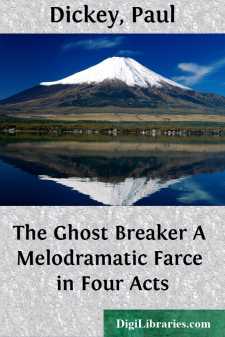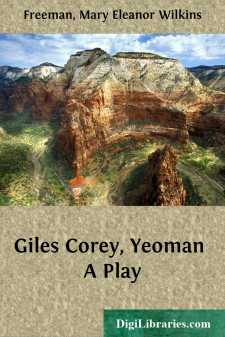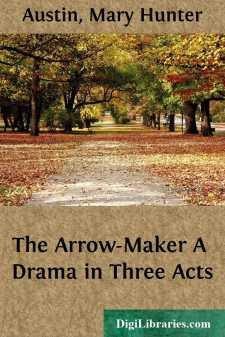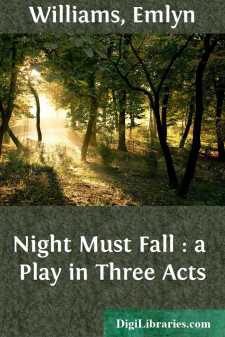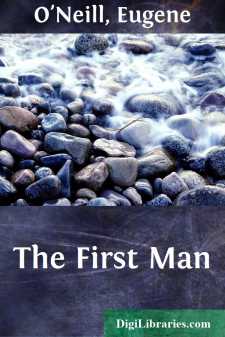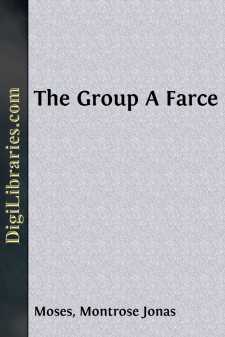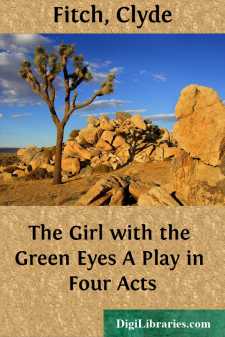Drama
American Books
Sort by:
MR. AND MRS. EDWARD ROBERTS; THE CHOREWOMAN Mrs. Roberts, with many proofs of an afternoon's shopping in her hands and arms, appears at the door of the ladies' room, opening from the public hall, and studies the interior with a searching gaze, which develops a few suburban shoppers scattered over the settees, with their bags and packages, and two or three old ladies in the rocking-chairs. The...
more...
by:
Paul Dickey
THE CAST Princess Maria Theresa of Aragon. Warren Jarvis, of Kentucky. Nita, the Princess' Maid. House Detective, Manhattan Hotel. Rusty Snow, Warren Jarvis' Colored Servant. Detectives, from Police Headquarters. Hotel Porter. Steward, on S.S. Aquitania. Carlos, Duke d'Alva. Dolores, the Innkeeper's Daughter. Vardos, Messenger to the Missing Prince. Don Robledo, a Soldier of...
more...
Act I. Scene I.—Salem Village. Living-room in Giles Corey's house. Olive Corey is spinning. Nancy Fox, the old servant, sits in the fireplace paring apples. Little Phœbe Morse, on a stool beside her, is knitting a stocking. Phœbe (starting). What is that? Oh, Olive, what is that? Nancy. Yes, what is that? Massy, what a clatter! Olive (spinning). I heard naught. Be not so foolish, child. And...
more...
The greatest difficulty to be met in the writing of an Indian play is the extensive misinformation about Indians. Any real aboriginal of my acquaintance resembles his prototype in the public mind about as much as he does the high-nosed, wooden sign of a tobacco store, the fact being that, among the fifty-eight linguistic groups of American aboriginals, customs, traits, and beliefs differ as greatly as...
more...
by:
Emlyn Williams
ACT I The sitting-room of Forest Corner, MRS. BRAMSON'S _bungalow in a forest in Essex, A fine morning in October. Centre back, a small hall; in its left side the front door of the house (throughout the play, "left" and "right" refer to the audience's left and right). Thick plush curtains can be drawn across the entrance to the hall; they are open at the moment. Windows, one...
more...
by:
Royall Tyler
THE 'Contrast' was the first American play ever performed in public by a company of professional actors. Several plays by native authors had been previously published, the more noteworthy being the 'Prince of Parthia,' a tragedy by Thomas Godfrey of Philadelphia, which was probably written, and was offered to Hallam's company in 1759 (but not produced), and was printed in 1765,...
more...
by:
Eugene O'Neill
ACT I SCENE—Living-room of CURTIS JAYSON'S house in Bridgetown, Conn. A large, comfortable room. On the left, an arm-chair, a big open fireplace, a writing desk with chair in far left corner. On this side there is also a door leading into CURTIS' study. In the rear, center, a double doorway opening on the hall and the entryway. Bookcases are built into the wall on both sides of this...
more...
MRS. MERCY WARREN (1728-1814) Most of the literature—orations as well as broadsides—created in America under the heat of the Revolution, was of a strictly satirical character. Most of the Revolutionary ballads sung at the time were bitter with hatred against the Loyalist. When the conflict actually was in progress, the theatres that regaled the Colonists were closed, and an order from the...
more...
by:
Upton Sinclair
THE NATUREWOMAN ACT I [Scene shows a luxuriously furnished drawing-room. Double doors, centre, opening to hall and stairway. Grand piano at right, fireplace next to it, with large easy-chair in front. Centre table; windows left, and chairs.] [At rise: ETHEL standing by table; a beautiful but rather frail girl of sixteen; opening a package containing photograph in frame.] ETHEL. Oceana! Oceana! [She...
more...
by:
Clyde Fitch
ACT I A charming room in the Tillmans' house. The walls are white woodwork, framing in old tapestries of deep foliage design, with here and there a flaming flamingo; white furniture with old, green brocade cushions. The room is in the purest Louis XVI. The noon sunlight streams through a window on the left. On the opposite side is a door to the hall. At back double doors open into a corridor which...
more...



